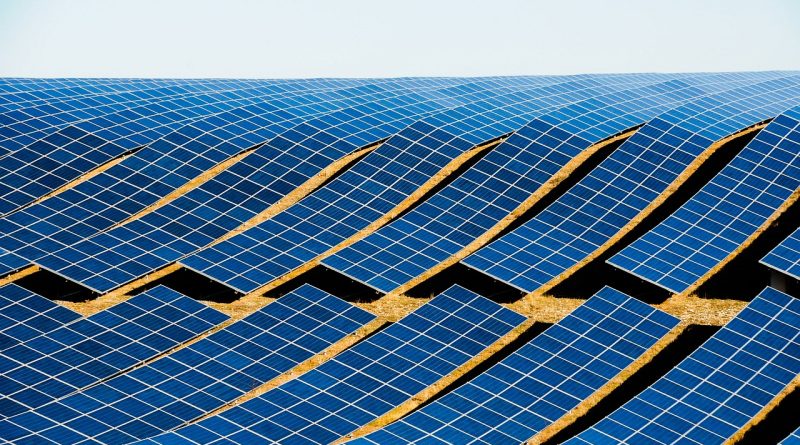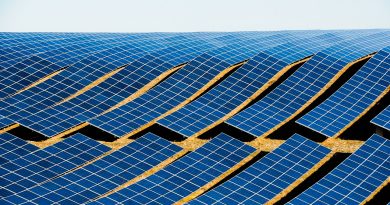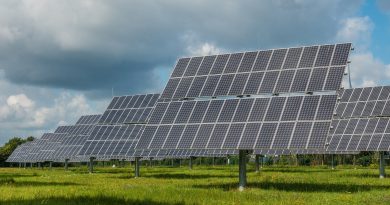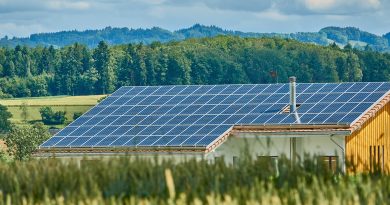Solar-Powered Home Appliances: Unveiling the Feasibility
Is it possible to run home appliances on solar power?
With the increasing need for sustainable and renewable energy sources, many homeowners are turning to solar power as a viable solution. Solar power systems utilize sunlight to generate electricity, which can be used to power various appliances in our homes. This article explores the feasibility of running home appliances on solar power, delving into the advantages, limitations, and considerations associated with this alternative energy source.
Table of Contents
Advantages of Solar Power for Home Appliances
1. Energy Cost Savings
One of the key advantages of running home appliances on solar power is the potential for significant energy cost savings. Solar power systems generate electricity from sunlight, which is essentially free. By installing solar panels on your rooftop, you can harness this free energy source and reduce your dependence on conventional electricity. Over time, this can result in substantial savings on your monthly energy bills.
2. Environmental Benefits
Solar power is a clean, renewable energy source that produces no harmful emissions or pollution when generating electricity. By using solar power to run your home appliances, you can significantly reduce your carbon footprint, contributing to a cleaner and healthier environment. Unlike fossil fuels, which contribute to climate change and air pollution, solar power offers a sustainable and eco-friendly alternative.
3. Energy Independence
When you run home appliances on solar power, you become less reliant on the traditional electrical grid. This independence can be particularly beneficial during power outages or emergencies when the grid might be compromised. Having a solar power system installed allows you to generate your electricity, providing a reliable source of power for essential appliances and ensuring you remain unaffected during blackouts.
Limitations and Considerations
1. Initial Cost
While solar power offers long-term cost savings, it is important to consider the upfront investment required for installation. Setting up a solar power system for your home appliances can be expensive, including the cost of solar panels, batteries, and inverters. However, it is crucial to keep in mind that the initial high cost can be recovered over time through reduced energy bills and potential government incentives or tax credits for adopting solar energy.
2. Weather Dependency
Another limitation of relying solely on solar power for home appliances is its dependence on weather conditions. Solar panels need sunlight to generate electricity effectively. During cloudy days or low light conditions, the efficiency of the solar power system might be reduced, resulting in lower energy generation. This is why it is essential to consider the local climate and solar potential when deciding to switch to solar power.
3. Storage Capacity
Solar power generation is intermittent, as it can only generate electricity during daylight hours. If you plan to run your home appliances solely on solar power, you will need an effective storage system, usually in the form of batteries. These batteries store excess energy generated during the day for use during the night or cloudy periods. However, battery storage can be expensive and requires proper maintenance and replacement over time.
Conclusion
Embrace feasible solar living with SolarClue® as we unveil the potential of solar-powered home appliances. From water heaters to air conditioners, our appliances harness clean energy, providing a practical and cost-effective alternative for modern households. Seamlessly integrated into existing electrical systems, these appliances contribute to significant cost savings and reduced carbon footprints. SolarClue® ensures feasibility by offering a range of solutions that operate during grid outages, promoting reliability and sustainability. Explore government incentives and let our experts assess your individual needs, guiding you toward a seamless transition to a more eco-friendly and feasible solar lifestyle. Contact us for a personalized consultation and embark on a greener future with SolarClue®.
Frequently Asked Questions
It’s highly feasible. Solar-powered home appliances leverage sunlight, providing a sustainable and cost-effective alternative to traditional power sources.
Appliances such as solar water heaters, lighting systems, air conditioners, refrigerators, and fans can be effectively powered by solar energy.
Yes, these appliances are designed for easy integration, allowing homeowners to harness solar energy without major modifications to their existing setups.
Solar water heaters use sunlight to heat water, significantly reducing energy costs and providing a feasible and sustainable solution for hot water needs.
Yes, solar air conditioners efficiently cool spaces using clean energy, offering a practical and eco-friendly solution for climate control.
Solar lighting systems reduce dependence on grid electricity, promoting feasibility by offering an energy-efficient and cost-effective alternative for illuminating homes.
Yes, with the right setup, solar-powered appliances can continue to operate during grid outages, providing a reliable and feasible source of power.
By utilizing clean, renewable energy, solar-powered appliances significantly reduce carbon emissions, making them an eco-friendly and feasible choice for environmentally conscious homeowners.
Many regions offer incentives, rebates, or tax credits to encourage the adoption of solar technologies, making it more feasible and cost-effective for homeowners.
Contact SolarClue® for a personalized assessment. Our experts evaluate your energy needs, recommend feasible solar-powered appliances, and guide you through a seamless integration process for a sustainable home.




